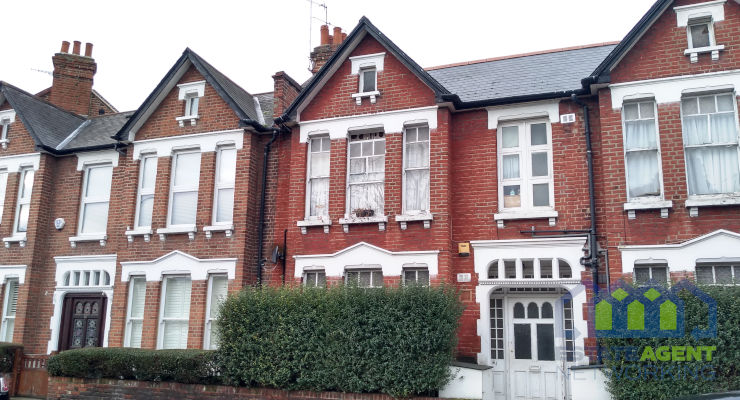How UK Property Investors Can Manage Exchange Rate Risk When Buying Off-Plan Overseas
Off-plan purchases are especially common in developing overseas property markets with a high proportion of international investors. In these less mature markets, a significant share of stock is sold directly by developers, making off-plan transactions a natural sales model. These opportunities appeal to international buyers because they typically require less upfront cash due to extended settlement periods, while also offering the potential for capital appreciation during construction.
Additionally, many off-plan properties are commoditised – standardised apartments or villas – which makes them easier to compare, value, and manage as part of a rental investment portfolio.
A significant risk which must be considered when purchasing off-plan overseas property is exposure to exchange rate fluctuations. Because the settlement period is typically extended over many months and often years, buyers may find themselves exposed to currency movements between the time of signing the contract and the time of final payment.
What Is Exchange Rate Risk When Buying Off-Plan Property?
Exchange rate risk arises when a property is priced in one currency (e.g., Thai Baht), but the buyer holds funds in another (e.g., British Pounds). If the buyer does not exchange all the funds once initial contracts are signed – as is typically the case – and they are holding their settlement funds in a different currency to the pricing currency, they are exposed to currency movements over the settlement period. The settlement period is usually tied to construction progress over the time that the property or project is built. If the buyer’s home currency weakens during that time, their acquisition cost has increased, even though the price in the local currency remains unchanged.
How Exchange Rate Fluctuations Can Affect Property Prices
A Simplified Example: Lump-Sum Payment at Completion
Let’s start with a straightforward case to illustrate how exchange rate movements can affect the overall investment cost.
Imagine a UK investor agrees to purchase an off-plan villa in Thailand for 30 million Thai Baht (THB), with construction expected to take 12 months. A 10% deposit (3 million THB) is paid at the time of signing, with the remaining 27 million THB due upon completion.
At that point, the GBP/THB exchange rate is 45, so the buyer estimates:
- Deposit = £66,667
- Balance = £600,000
- Total expected cost = £666,667
Now, 12 months later, the Thai Baht has strengthened significantly, and the exchange rate has moved to 40 THB per GBP. The balance of 27 million THB now converts to £675,000, bringing the total investment to £741,667 – an unexpected increase of £75,000 purely due to the shift in currency value.
This example highlights that when contracts are fixed in a local currency, they carry financial uncertainty when paid in a foreign currency. Despite the property price staying the same in THB, currency movements can materially impact the buyer’s total cost.
A More Realistic Example: Staggered Payments During Construction
To take a more realistic example, overseas off-plan property purchases usually involve staged payments tied to construction progress – either as each individual unit is completed or as key phases of the overall project are delivered. In practice, different construction milestones carry different levels of significance, so instalment amounts often vary. However, for simplicity, let’s assume the payments are divided equally.
Let’s assume the remaining 90% balance (27 million THB) is paid across four equal instalments of 6.75 million THB, scheduled every three months. At the time of signing, the buyer estimates total costs as follows:
- Deposit = £66,667
- Each instalment = £150,000 (assuming 45 THB/GBP)
- Total estimated cost = £666,667
Now, let’s assume that the exchange rate changes over the settlement period, resulting in the following revised instalment costs:
- 1st instalment (43 THB/GBP): £156,977
- 2nd instalment (42 THB/GBP): £160,714
- 3rd instalment (41 THB/GBP): £164,634
- 4th instalment (40 THB/GBP): £168,750
Total for instalments = £651,075
- Deposit = £66,667
- Final total paid = £717,742
While the currency changes at each stage may seem incremental, the combined effect of a weakening pound over time leads to a substantial increase of £51,075 compared to the original expectation.
How You Can Manage Exchange Rate Risk
One option is to convert all remaining funds into the settlement currency immediately after signing the contract and place them in a secure escrow account with your lawyer. This approach effectively locks in the cost at the outset and eliminates exposure to future currency fluctuations. However, this places heavy demands on cash flow, equivalent to making settlement in full. The ability to stage payments over time is one of the main financial benefits of buying off-plan, as it reduces pressure on cash flow. By transferring the full amount upfront to a lawyer, this advantage is lost, which can make the option less attractive for many buyers.
Another possible way to reduce exchange rate risk is to fix the exchange rate at the time contracts are signed. In this case, all future payments are calculated using the agreed rate, regardless of how the currency fluctuates during the settlement period. This kind of arrangement requires mutual agreement between the buyer and the developer, which isn’t always simple to negotiate, but it offers upfront clarity of settlement costs.
Alternatively, the buyer may be able to negotiate for the property price to be set in their own currency instead of the standard pricing currency. This effectively shifts the exchange rate risk to the developer, as future payments would be made in the buyer’s currency. While some developers may agree to this, others may decline due to the added financial risk. Still, when achievable, this approach can eliminate currency risk entirely for the buyer.
Lastly, though more complex, buyers can also use financial instruments such as forward contracts to lock in a fixed exchange rate for future currency conversions.
These tools can help manage exposure over the construction period by providing certainty on conversion rates. However, as these are specialised financial products, it’s important to seek professional advice before entering into such agreements
Final Thoughts
Managing exchange rate risk is an essential part of buying off-plan property overseas in any situation where the buyer’s home currency differs from the pricing currency. While currency swings can sometimes work in your favour, they can just as easily move against you. The key point is having the ability to manage your cash flow and know the total price of the property in advance. By having a clear strategy in place, you maintain greater control over your financial exposure and help ensure that currency fluctuations don’t undermine the overall viability of the investment.
View more insights on overseas property investment at charlesdel.com








